The musings, rambling blog entries, humor, life, political opinions, observations, personal and spiritual beliefs, tasty treats and other writings of an almost 40, single mother of two.
Wise Words
Translation/Search
Wednesday, August 31, 2005
The myth of no expression of faith in the public school system
If there are any questions you have regarding something that may have happened to your child in terms of disciplinary action or warnings given in regards to their faith (or you in the workplace for that matter), please contact the American Center for Law and Justice. They are a FREE legal representation and legal counsel for any and all religious matters pertaining to faith in the workplace or public school system.
Also, below the information for public schooling, there is information regarding home schooling for those who are interested in that as well. Home schooling doesn’t have to be faith based, though most of those who home school do have a faith based curriculum. Personally, if I could afford to be a SAHM, I would look into home schooling Emily. Since that is not an option, I want to put her into a private school. Of course that is a discussion that Matt and I will have to have. We’ve already discussed it and have agreed that private school is a good thing for Emily, now it’s just choosing the school.
I was in the private school system from K-9 and transferred into the public school system in 10th grade. I wish now that I never would have made that transition. My worldview got very skewed for a while, especially regarding peer pressure because everything was so different, I could do so many things in public school that I couldn’t do in private school. Now I know that there is a reason for that. Character gets compromised; maybe the ethics stay the same, but the morals get changed to “fit in” with the crowd.
Hindsight is 20/20 and I’m just happy that I can take advantage of my hindsight when it comes to Emily and how I want her to be raised and what I want her to avoid and the character traits I want to be instilled in her. The public school system doesn’t offer that – especially around here. In Austin, pretty much the whole district fails every year when they go in to check the schools and give them grades based on how well they are performing in the basics, etc. I would much rather scrimp and save and have it be tight in order for Emily to get a good faith-based education in a private school rather than the crap that the NEA shovels out en mass.
BACK TO SCHOOL: FAITH IN THE CLASSROOM
The role of religion in public schools continues to be a hotly debated issue. Some public school teachers avoid the mere mention of religion in their classrooms because they are afraid of offending students, becoming the target of a lawsuit, or even losing their job. Other teachers would like to talk about religion, but don't know what they are allowed to say and what would be considered "crossing the line." If you are among the many teachers, students, and parents who may have questions concerning religion in public schools, you may wish to take a moment to explore some of the resources available to you.
A publication by the First Amendment Center called Finding Common Ground: A Guide to Religious Liberty in Public Schools can be downloaded for free online (see link below). Finding Common Ground is a guidebook that explains teachers' and students' religious rights. It gives information concerning a wide variety of subjects such as equal access, judicial court rulings, and religious holidays. Below you will also find a link to the United States Department of Education Guidelines on Religious Expression in Public Schools.
Freedom of Speech
The Supreme Court has ruled that students retain their freedom of speech and expression when at school. According to the 1969 Supreme Court decision in Tinker v. Des Moines Independent School District, a school may only silence students if they are actually disrupting school discipline. That is, a student's freedom of expression does not give him or her the right to interrupt class. However, during free time, students are free to:
• Read their Bibles
• Talk to peers about religion and pray with their peers
• Wear clothing with Christian symbols and messages
• Pass out religious tracts
Equal Access
If a secondary public school receives any federal funding and if it allows any other non-curriculum clubs (like the chess club or the glee club) to form, then it must allow students to form Bible clubs or other religiously oriented organizations on campus, with the same rights to the facilities as other clubs. Religious clubs are guaranteed the right to official recognition, which means the school must offer them access to the school newspaper, bulletin boards, and the public announcement system et al. Religious clubs, however, must be student-initiated and student-led. The students may invite outside speakers, but the club must be organized and led by the students themselves.
Educational Opportunities
Because religion is such an integral part of history and politics and the human experience in general, it is a relevant topic in the classroom setting. Teachers and students are free to discuss different religions and the impact religion has had on society. While teachers must maintain a neutral position with the students, students are free to offer their own personal opinions on religious matters. [Teachers are free to discuss religious issues with their own peers outside of the classroom.]
Students may write papers on religious subjects, including the Bible. The Bible has had an enormous impact on history and literature and is an important book to know, even from a secular viewpoint. Literature from Shakespeare to Faulkner is full of allusions to the Bible, which can only be fully appreciated with a working knowledge of God's Word.
Teachers
Teachers also retain their First Amendment rights at school, but at the same time represent the school while in the classroom and at school events. Therefore, public school teachers are not permitted to "force their religion" on the kids. However, teachers do have a lot of freedom to teach about religion for educational purposes. They may teach on comparative religions, including Christianity. They may discuss the impact religion has had on history and science and literature. They may even discuss religion with students one-on-one, if the student initiates and maintains the conversation and is not compelled to agree with the teacher's position.
As school starts up again, continue to pray for those faithful teachers who are striving to teach students according to righteousness in the face of an increasingly liberal education establishment, and for those students who are willing to stand up for their faith and be a light to their peers rather than just going along with the crowd.
Related Links:
United States Department of Education Guidelines on Religious Expression in Public Schools – ACLJ
Finding Common Ground: A Guide to Religious Liberty in Public Schools - First Amendment Center
TRAIN UP A CHILD: THOUGHTS ON HOME SCHOOLING
An estimated 2 million children were home schooled last year and that number is growing fast. The effectiveness of home schooling has been the subject of much research and debate. Critics decry home schooling as being ineffectual for scholastic achievement. The facts speak otherwise.
On almost every standardized test, home schooled children seem to excel. Statistical data continues to conclude that home schooling not only works, but it works effectively. And it works without the myriad of state controls and accreditation standards imposed on public schools. According to the National Home Education Research Institute the home educated score better, on average, than students in conventional state-run schools.
But these are only academic measures. The Spiritual value of home schooling is difficult to measure on a standardized test. Spiritual integrity and close family relationships are the real prizes of home schooling.
God's creation design is for married couples to bear children and train them to be righteous before Him. God gives us the great commandment in Deuteronomy 6:4 and then instructs us further:
"And these words, which I command thee this day, shall be in thine heart: And thou shalt teach them diligently unto thy children, and shalt talk of them when thou sittest in thine house, and when thou walkest by the way, and when thou liest down, and when thou risest up (Deuteronomy 6:6,7)."
God has placed children in families that they might learn from their parents' character and skills what will be needed in order for them to fulfill their life's purposes. The instruction of parents is vital. Parents who home school are discovering the blessed opportunity to direct more closely the spiritual growth of their children.
If you want to consider home schooling, you don't have to re-invent the wheel or do it alone. There are many resources available to help. The Home School Legal Defense Association website has answers to many commonly asked questions as well as lots of good resources to get you started.
"Train up a child in the way he should go: and when he is old, he will not depart from it (Proverbs 22:6)."
Home School Legal Defense Association -
National Home Education Research Institute -
The Myth of Socialization by John Loeffler - Koinonia House
The Un-Neighborly Neighbor by Vicki Brady - Koinonia House
About Me

- Nic
- CenTex, Texas, United States
- SO much has changed in my life since I last blogged regularly in 2010. I'm 39 now, single and trying to be the best mom I can be as well as doing the best I can for my unbelievably precious daughter who’s now 11 and my beautiful, inquisitive little man who turned 3 in November. I'm learning to live again with joy and happiness and a new lease on life. God has really been working in my life and BIG changes are in the works and I'm incredibly excited about them! One of the changes is becoming a distributor and advisor for AdvoCare. After seeing what it did for me on the 24 Day Challenge (lost 15 pounds and an overall total of 32.5") I was sold, not only from the external physical results, but the internal ones as well. I've never felt so good! As the Gary Allan song goes, "Life ain’t always beautiful but it’s a beautiful ride". I hope to take you along on the ride through my life as it changes and as I continue to change. I hope you stay a while and enjoy yourselves and maybe learn a little about coping with unexpected circumstances in life with the help of God. Come back soon!
Followers
Blog Archive
-
▼
2005
(155)
-
▼
August
(18)
- The myth of no expression of faith in the public s...
- The Rally Report
- And now a word from Chuck Colson
- It's been a HOT, long and rewarding day...
- Follow the yellow brick road
- Three down, two to go...
- Instead of the HDQ...
- The return of the missing Monday Meal!
- Update on Marine being denied in-state tuition...
- Today's FFT
- Mother Sheehan's gentle musings...
- Decorated Marine denied in-state tuition
- And now...for some lighter fare
- Gosh...
- When in doubt...don't
- HDQ
- It's not the FFT...
- Well...I'm back...and the HDQ
-
▼
August
(18)
Labels
- 2013 (1)
- 2014 (1)
- 9-11 (1)
- A-HA Moments (8)
- Abrahamic Covenant (1)
- Adultery (1)
- Advice (14)
- AdvoCare (3)
- Amazing Grace (1)
- Amber's Angels (1)
- Amberlyn (3)
- Amberlyn's Memorial Benefit Concert (1)
- Amen (6)
- America (2)
- As You Wish (2)
- BAM (4)
- Be Patient (1)
- Be the Example (6)
- Be The Light (1)
- Beatles (1)
- Being Frank (8)
- Believe (3)
- Bible (10)
- Biblical Motherhood (21)
- BLACK and WHITE (2)
- Blessings (4)
- Blood (4)
- Breakthroughs (13)
- Build (1)
- CF (3)
- Challenge (1)
- Champion (1)
- Championship Mindset (1)
- Change (1)
- Change Is Here (2)
- Changed (6)
- Check Yourself (9)
- Children (1)
- Cinderella Story (1)
- Come To Jesus (4)
- Complacency (1)
- Conversations with God (1)
- Covenant (1)
- Cross (6)
- Crucifixion (2)
- Dallas (1)
- Dallas Shooting (1)
- Death (2)
- Debate (1)
- Deception (1)
- Determined (1)
- Different (7)
- Discipline (1)
- Divorce (1)
- Don't Give the Devil a Foothold (3)
- Donkey (1)
- Doubts (4)
- East to West (2)
- Easter (4)
- Encouragement (13)
- Eternity (3)
- Excited (5)
- Explanation (2)
- Extraordinary Life (2)
- Faith (16)
- Faith Not Fear (2)
- Faithful (2)
- False Doctrine (1)
- Family (6)
- Favorite Movie (1)
- Fear (1)
- Fear NOT (3)
- FFI (Friday Fill Ins) (1)
- FFT (Friday Field Trip) (37)
- Financial Freedom (2)
- Firm Foundation (2)
- Food (1)
- Food For Thought (6)
- Forever Love (1)
- Forgiveness (2)
- Francis Chan (2)
- Freedom (1)
- Friends (1)
- Friendship (3)
- Future (10)
- Go Fund Me (1)
- God (12)
- God First (3)
- God is good ALL the time (1)
- God Is Writing Your Love Story (1)
- God Knows (1)
- God Says (3)
- God Says I Can (1)
- God's Mercies (3)
- God's Timing (4)
- God's Way (7)
- God's Word (4)
- Godly Man (1)
- Godly Wisdom (1)
- Good Friday (1)
- Grace (3)
- Guilty (1)
- Happiness (3)
- Hard Stuff (2)
- Hard Truth (2)
- HE IS RISEN (3)
- Health (2)
- Hell (2)
- Help (1)
- Holy Week (6)
- Honesty (10)
- Hope (7)
- Horoscope (1)
- Humor (1)
- Hypocrite (1)
- I Can Do ALL Things Thru Christ (2)
- I Miss Mayberry (1)
- In Christ ALONE (2)
- In Other Words (34)
- Injuries (1)
- Isaiah 53 (1)
- Jesus (5)
- John 3:16-17 (1)
- Joy In Jesus (1)
- Just DO it (1)
- Know Yourself (1)
- Lamb of God (1)
- Layla Grace (9)
- Learn (3)
- Legacy (2)
- Lent (1)
- Lessons (9)
- Liberty (2)
- Listening (3)
- Living In The Gray (1)
- Logic (1)
- Loss (2)
- Love (13)
- Love Language (1)
- Love One Another (1)
- Marriage (3)
- Marriage Mondays (1)
- Memorial Day (1)
- Memories (2)
- Message (2)
- Metamorphasis (1)
- Metamorphosis (3)
- Military (1)
- Mindset (2)
- Miracle Monday (3)
- Monday Memeday (2)
- Monday Musings (3)
- More Than We Could Imagine (1)
- Music (2)
- Never Forget (1)
- New Beginnings (3)
- New Creation (2)
- New Year (1)
- Not The Same (4)
- Occult (1)
- Offensive (1)
- Offering (1)
- Oneand2 (3)
- Oneand2.com (2)
- Oneand2KindaTruth (8)
- OUCH (3)
- Out Of My Comfort Zone (1)
- Parenting (2)
- Parenting With Love (1)
- Passover (1)
- Patience (3)
- Patriotic (1)
- Poison (1)
- Ponderings (7)
- Pray (2)
- Prayer (5)
- Procrastination (1)
- Profound (8)
- Promises (1)
- Prophecy Fulfilled (1)
- Proud (1)
- Purity (2)
- Questions (2)
- Quiz Results (1)
- Racism (1)
- Recovery (1)
- RED Movement (9)
- Redeemed (2)
- Rejoicing in the RED (13)
- Relationships (10)
- Remember (1)
- Remembrance (3)
- Resurrection (3)
- Resurrection Sunday (2)
- Revelation (2)
- Robbie Page (1)
- Robbieisms (1)
- Rock Bottom (1)
- Rom 8:28 (1)
- Romance (1)
- Sacrifice (6)
- Salvation (6)
- Saturday (1)
- Savior (2)
- Seek God (1)
- September 11 (1)
- Sex (1)
- Shades of Gray (2)
- Sin (6)
- Single Parent Life (2)
- Solutions (3)
- Someday My Prince Will Come (2)
- Spiritual Death (1)
- STOP IT (1)
- Storybook Story (1)
- Struggles (2)
- Suffering (4)
- Support (3)
- Sweating the Small Stuff (2)
- Testimony (1)
- Thank You God (3)
- Thankful (8)
- The Last Supper (1)
- The Princess Bride (1)
- The Right Thing (2)
- The Truth Hurts (1)
- This Is True Love You Think This Happens Every Day (1)
- To The Point (6)
- Transformation (2)
- Transformed (2)
- Translation (1)
- Trick (1)
- True Freedom (1)
- True Peace (1)
- Trust (5)
- Trust and Obey (4)
- Truth (22)
- Truth Bomb (3)
- Unanswered Prayers (1)
- Unforgiveness (1)
- Wait on the Lord (3)
- Walk With God (2)
- Wants vs Needs (1)
- Washed in the Blood (3)
- We Have A Problem (1)
- Weight Loss (2)
- Why Be Normal (1)
- Win Souls Not Grow Numbers (1)
- Wisdom (7)
- Wise Words (4)
- Witness (1)
- Word Filled Wednesday (10)
- Work In Progress (3)
- Worship (1)
- YOLO (1)
- You Can't Fool God (1)
About What I BELIEVE!
Sidebar



My OTHER blog
Click HERE
MY FACEBOOK
For the BIKER in me!

Monday's:
A Nic Creation:



Tuesday's:

A Nic Creation:

Wednesday's:

A Nic Creation:

Thursday's:



Friday's:
A Nic Creation:



Join the All*Blog*Stars blog!


Are you financially prepared for tomorrow?
Do you have alternative cash-flow streams coming into your household?
What would happen if some sort of disaster struck your area; hurricane, earthquake, flood?
What about the ever possible PINK SLIP and downsizing? If you were laid off tomorrow, do you have a Plan B? What about a Plan C?
In this interactive CD Ray Gano and Wilfred Hahn lecture on many issues we are facing today and how to prepare ourselves, so when that day comes, we are able to stand.

Click the pic and order the book that everyone is raving about from Amazon!
|
Daily Wisdom |
| Add this to your site |


Visitors here right now


Pretty Wildflowers
In The Field
help?


Ever Vigilant Exchange Blogroll

All *Blog* Stars Blogroll

Christian Women Online
Blog Ring
Join | List | Random

Click here to join
Blogging Chicks





Prev | List | Random | Next Powered by RingSurf! |


Join List > Rand

Four Dangerous Men









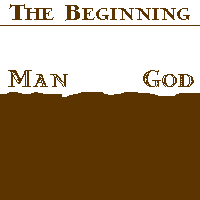
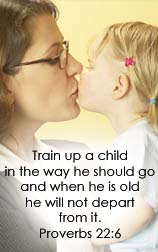
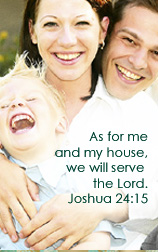
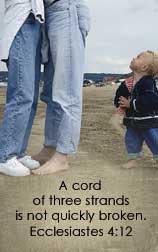



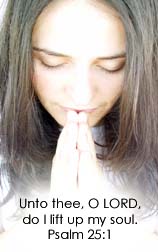


















2 comments:
An excellent post, Nic; both literate and inmformative. Very good.
AMEN! Found you via our dear Captain Picard. I have really enjoyed your writing and will be back again soon. Keep up the good work! There are more like-minded people out there than you know.
Post a Comment